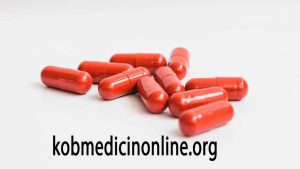
Major Depressive Disorder (MDD) with Peripartum Onset (also known as postpartum depression) is different than a temporary mood disturbance after childbirth. Up to 6% of women will experience a major depressive episode during pregnancy or in the first year following delivery. It is also estimated that 50% of all MDD episodes actually begin prior to delivery or postpartum. For this reason, all episodes are referred to collectively as “peripartum.”
Any woman can experience postpartum depression and it has no relationship to a woman’s capacity to be a good mother. With treatment, she can feel better.
Symptoms
Postpartum depression can present different symptoms, depending on the person. But common symptoms include:
- Extreme difficulty in day-to-day functioning
- Feelings of guilt, anxiety and fear
- Loss of pleasure in life
- Insomnia
- Bouts of crying
- Thoughts of hurting oneself or the infant
ADS
Psychotic symptoms in the peripartum timeframe are less common after childbirth and are characterized by seeing things that don’t exist, confusion, rapid mood swings and thoughts of harming oneself or the infant. These symptoms only occur in about 1 of every 1,000 births. Women who have bipolar disorder or schizoaffective disorder are at increased risk of having psychotic symptoms, but they can also occur in women with no prior history.
Causes
Previous depressive episodes and/or a family history of depression, lack of social support, anxiety, marriage or money problems, stress and substance use disorders are risk factors for MDD with Peripartum Onset. The risk of developing symptoms of depression has also been associated with being a stay-at-home mother and unwanted pregnancy.
Women who have experienced one episode of post-partum depression have an increased chance of experiencing it again. Preparing with your doctor for onset can make a significant difference in many cases.
Diagnosis
One of the criteria used to diagnose depression is appetite change. However, appetite may not be suitable for the diagnosis of depression in the perinatal (the period around birth: five months before and one month after) period.
Dramatic hormone changes—like those that happen during the perinatal period—can replicate symptoms of depression. During pregnancy, a woman’s estrogen and progesterone levels increase. In the first 24 hours after childbirth, these hormone levels abruptly return to normal. Thyroid hormones may also decrease after childbirth. A blood test can determine if thyroid/hormone levels are truly to blame.
ADS
Treatment
The key to recovery is seek help as soon as symptoms are recognized. Treatment plans vary by individual and include options such as individual, family or group psychotherapy, medications.
Resources
Studies suggest that women who experience postpartum depression have often had earlier episodes of depression that were not diagnosed or treated. If you have experienced an episode of depression and are planning to become pregnant, you can reduce your risk and improve your outcomes. Talk with your obstetrician or primary care provider about whether they can help you—if not, a mental health professional can be of help. Local academic departments of psychiatry also often have resources in this field. Here is one example at Massachusetts General Hospital in Boston.


